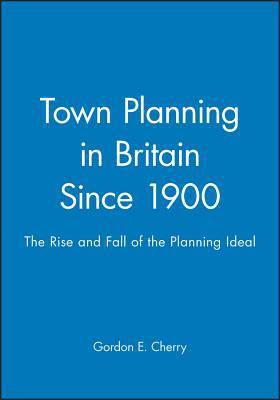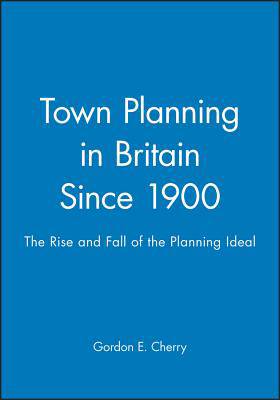
Door een staking bij bpost kan je online bestelling op dit moment iets langer onderweg zijn dan voorzien. Dringend iets nodig? Onze winkels ontvangen jou met open armen!
- Afhalen na 1 uur in een winkel met voorraad
- Gratis thuislevering in België vanaf € 30
- Ruim aanbod met 7 miljoen producten
Door een staking bij bpost kan je online bestelling op dit moment iets langer onderweg zijn dan voorzien. Dringend iets nodig? Onze winkels ontvangen jou met open armen!
- Afhalen na 1 uur in een winkel met voorraad
- Gratis thuislevering in België vanaf € 30
- Ruim aanbod met 7 miljoen producten
Zoeken
€ 240,95
+ 481 punten
Omschrijving
This book examines town and country planning policy in twentieth-century Britain as an important aspect of state activity. Tracing the origins of planning ideals and practice, Gordon Cherry charts the adoption by state, both at the central and local level, of measures to control and regulate features of Britain's urban and rural environments.
The author examines how town planning first took root as a professional activity and an academic discipline around the turn of the last century, largely as a reaction to the apparent problems of the late Victorian city. He shows, too, that this impetus for change coincided with a new perception amongst political thinkers of state planning as a legitimate and necessary function of Government's intervention in social and economic affairs. Town planning, as a state activity in land use regulation, housing, industrial location, roads and transport, became an important beneficiary of these developments.
The book highlights developments in planning policy over subsequent decades. The final part of the book focuses on the breakdown of consensus from the mid-1970s and how the new market orthodoxy has affected planning policy in the 1980s and 1990s.
The author examines how town planning first took root as a professional activity and an academic discipline around the turn of the last century, largely as a reaction to the apparent problems of the late Victorian city. He shows, too, that this impetus for change coincided with a new perception amongst political thinkers of state planning as a legitimate and necessary function of Government's intervention in social and economic affairs. Town planning, as a state activity in land use regulation, housing, industrial location, roads and transport, became an important beneficiary of these developments.
The book highlights developments in planning policy over subsequent decades. The final part of the book focuses on the breakdown of consensus from the mid-1970s and how the new market orthodoxy has affected planning policy in the 1980s and 1990s.
Specificaties
Betrokkenen
- Auteur(s):
- Uitgeverij:
Inhoud
- Aantal bladzijden:
- 272
- Taal:
- Engels
- Reeks:
- Reeksnummer:
- nr. 2
Eigenschappen
- Productcode (EAN):
- 9780631199939
- Verschijningsdatum:
- 1/01/1991
- Uitvoering:
- Hardcover
- Formaat:
- Pop-up boek
- Afmetingen:
- 140 mm x 216 mm
- Gewicht:
- 494 g

Alleen bij Standaard Boekhandel
+ 481 punten op je klantenkaart van Standaard Boekhandel
Beoordelingen
We publiceren alleen reviews die voldoen aan de voorwaarden voor reviews. Bekijk onze voorwaarden voor reviews.











